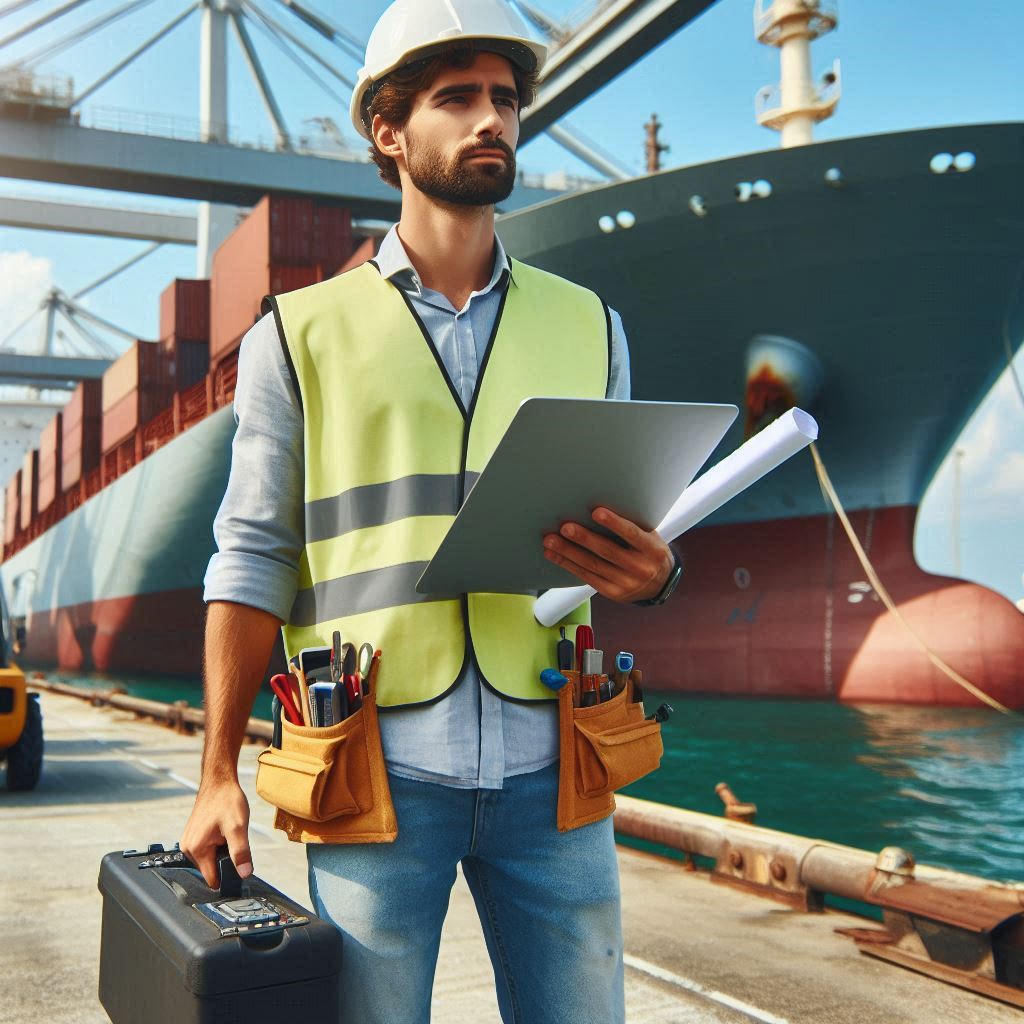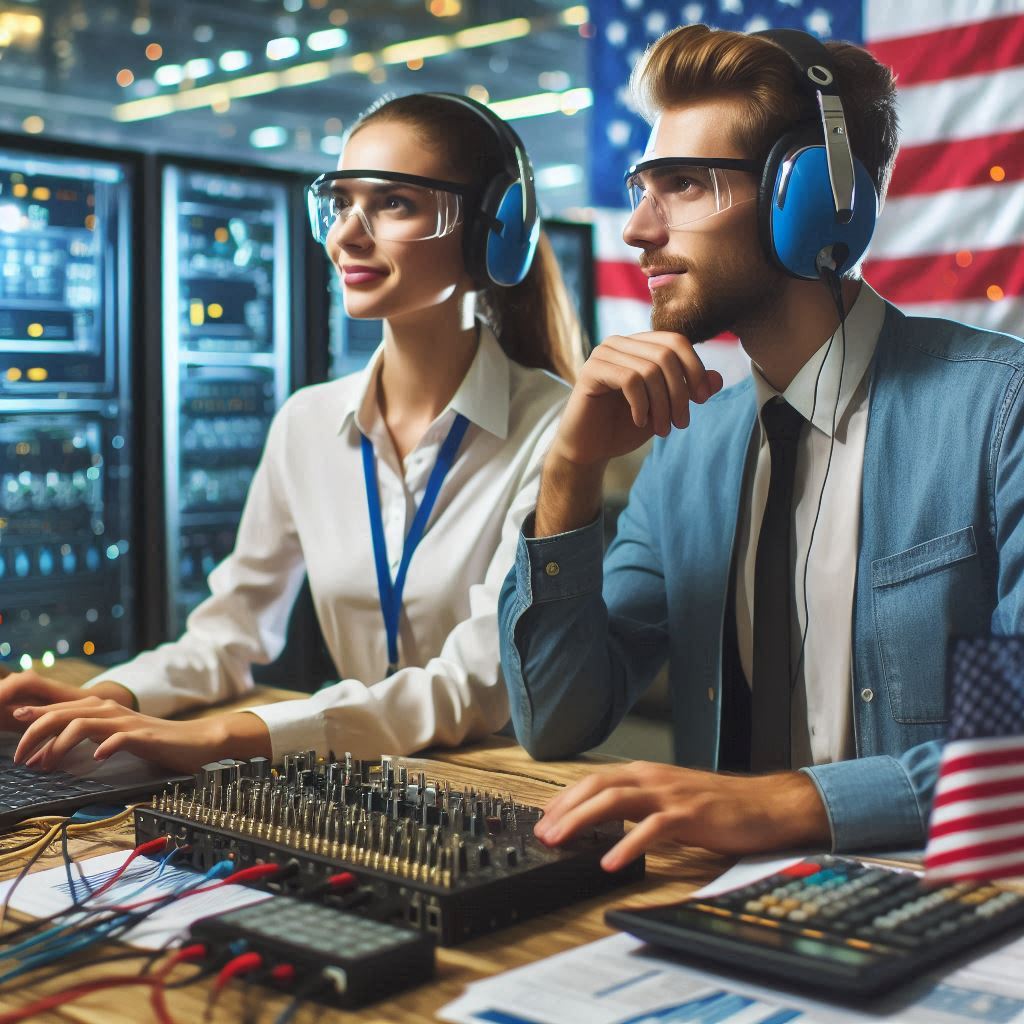Introduction
Continuous learning is crucial for marine engineers in today’s dynamic field.
Marine engineering evolves rapidly, driven by technological advancements and regulatory changes.
Staying updated with the latest developments is vital for maintaining competence and safety.
Marine engineers face constant challenges, from designing efficient propulsion systems to managing complex onboard technologies.
The integration of new materials, innovative designs, and advanced automation requires engineers to adapt swiftly.
Without ongoing education, engineers risk falling behind industry standards and missing opportunities for career advancement.
Technological advancements in marine engineering introduce new systems and equipment regularly.
Engineers must understand and apply emerging technologies to ensure they meet industry requirements and safety standards.
Continuous learning helps engineers stay proficient in using and maintaining cutting-edge equipment.
The regulatory landscape in marine engineering is also continually changing.
New environmental regulations and safety standards necessitate that engineers keep up-to-date knowledge.
Compliance with these regulations is essential to avoid legal issues and ensure the safety of maritime operations.
Furthermore, continuous learning enhances problem-solving skills.
Marine engineers often encounter unique challenges that require innovative solutions.
By engaging in professional development, engineers can learn new techniques and approaches that improve their ability to troubleshoot complex issues effectively.
Importance of staying competitive
How Continuous Learning Can Help Marine Engineers Stay Competitive in the Industry
In the rapidly evolving field of marine engineering, continuous learning is essential for maintaining a competitive edge.
The marine industry constantly introduces new technologies and updates regulations.
Engineers who stay informed about these changes can offer innovative solutions and enhance operational efficiency.
By embracing lifelong learning, marine engineers can adapt to technological advancements, ensuring they remain relevant in their roles.
The advent of advanced navigation systems, automated vessel operations, and sustainable technologies demands up-to-date knowledge.
Engineers who actively seek new learning opportunities can effectively integrate these innovations into their work.
This proactive approach helps them stay ahead of industry trends and positions them as leaders in their field.
Additionally, continuous education provides marine engineers with the skills to tackle emerging challenges.
For instance, understanding the latest environmental regulations and compliance standards is crucial as the industry shifts towards greener practices.
Engineers who are well-versed in these areas can ensure their projects meet current requirements and contribute to environmental sustainability.
The Importance of Acquiring New Skills and Knowledge to Advance in Their Careers
Acquiring new skills and knowledge is vital for career advancement in marine engineering.
The industry‘s dynamic nature requires engineers to continually update their expertise.
Engineers who pursue advanced degrees, certifications, and specialized training demonstrate their commitment to their profession and enhance their career prospects.
New skills, such as proficiency in cutting-edge software or knowledge of emerging technologies, enable engineers to perform complex tasks more efficiently.
For example, mastering advanced simulation tools can improve project accuracy and design quality.
Engineers who continuously update their skills are better equipped to handle complex engineering challenges and contribute to innovative solutions.
Professional certifications and training programs offer additional career benefits.
These credentials not only validate an engineer‘s expertise but also open doors to new job opportunities and higher salaries.
Engineers who actively seek out and complete relevant training programs often find themselves better positioned for promotions and leadership roles.
Networking opportunities also arise from engaging in continuous learning.
Participation in industry conferences, workshops, and educational courses allows engineers to connect with peers, mentors, and industry leaders.
These connections can lead to collaborative projects, job offers, and valuable career advice.
In summary, continuous learning plays a crucial role in helping marine engineers stay competitive and advance their careers.
By staying informed about industry advancements, acquiring new skills, and pursuing professional development opportunities, engineers can enhance their expertise, meet evolving industry demands, and achieve greater career success.
Keeping Up with Technological Advancements
How Continuous Learning is Essential for Marine Engineers to Keep Up with the Latest Technological Advancements in the Field
Continuous learning is crucial for marine engineers to stay current with rapid technological advancements.
The maritime industry constantly evolves, introducing new technologies and systems.
To remain effective, marine engineers must engage in ongoing education and training.
This helps them understand and apply the latest innovations, ensuring they can operate and maintain modern equipment effectively.
Technological advancements in marine engineering affect various aspects of the profession.
Marine engineers need to learn about new propulsion systems, navigation tools, and automation technologies.
These advancements improve efficiency, safety, and environmental sustainability.
Continuous learning enables marine engineers to adapt to these changes and meet the industry’s evolving demands.
Examples of How Technological Changes Impact the Job Responsibilities of Marine Engineers
Technological changes significantly impact marine engineers’ job responsibilities.
For instance, the introduction of hybrid and electric propulsion systems requires new skills.
Marine engineers must learn about these systems’ components, maintenance requirements, and troubleshooting methods.
Understanding these technologies ensures they can keep vessels running smoothly and efficiently.
Advanced navigation systems, including modern radar and satellite technologies, also impact marine engineers’ duties.
These systems provide real-time data that enhances navigation accuracy.
Marine engineers must stay updated on these technologies to perform maintenance and repairs.
Training in the latest navigation tools is essential for effective vessel operation.
Automation and digitalization are further transforming marine engineering.
Automated systems handle tasks that were previously manual.
Marine engineers must acquire specialized knowledge to manage, maintain, and repair these automated systems.
Continuous learning helps them stay proficient in handling new automation technologies.
Data analytics integration in marine operations also affects job responsibilities.
Marine engineers use data to monitor vessel performance and predict maintenance needs.
Staying informed about data analytics tools and techniques is crucial for optimizing performance.
Marine engineers must learn how to interpret and apply data effectively.
Lastly, evolving environmental regulations influence marine engineering practices.
New regulations often necessitate updated technologies and methods.
Marine engineers need to understand these regulations and implement compliant solutions.
Ongoing education helps them stay aware of regulatory changes and integrate new technologies.
In summary, continuous learning is vital for marine engineers to adapt to technological advancements.
It ensures they can handle new systems, tools, and regulations effectively, contributing to the industry’s progress and maintaining operational efficiency.
Read: Environmental Engineers in the Mining Industry
Enhancing safety and efficiency
How Continuous Learning Can Contribute to Improving Safety and Efficiency in Marine Engineering Operations
Continuous learning is essential for marine engineers aiming to enhance safety and efficiency.
Marine engineering operates in a high-risk environment with rapidly evolving technologies and regulations.
Staying updated with the latest advancements ensures that engineers can effectively manage these challenges.
For example, ongoing education helps engineers understand new safety protocols, implement advanced diagnostic tools, and adopt efficient maintenance practices.
This continuous learning process allows engineers to address emerging safety concerns promptly and optimize operational procedures.
Examples of How Staying Updated on Best Practices Can Prevent Accidents and Optimize Performance
Examples illustrate how continuous learning prevents accidents and optimizes performance in marine engineering.
- Adopting New Safety Technologies: Engineers trained in the latest safety technologies, like automated fire detection systems, can better manage onboard risks. These systems enhance emergency response capabilities and reduce the likelihood of accidents.
- Implementing Advanced Monitoring Systems: Real-time engine performance monitoring helps engineers detect potential issues early. For example, if a monitoring system identifies unusual vibrations or temperature changes, engineers can address these anomalies before they lead to mechanical failures.
- Updating Maintenance Techniques: Continuous learning about new maintenance techniques allows engineers to perform repairs more efficiently. Advanced knowledge of maintenance practices prevents unexpected breakdowns and ensures the smooth operation of marine vessels.
- Enhancing Fuel Management: Engineers who stay informed about advancements in fuel management systems can implement more efficient fuel usage practices. This not only reduces fuel consumption but also lowers operational costs and minimizes environmental impact.
- Adapting to Environmental Regulations: Knowledge of the latest environmental regulations helps engineers ensure compliance. This proactive approach reduces the risk of legal issues and penalties, contributing to both safety and operational efficiency.
In summary, continuous learning significantly enhances safety and efficiency in marine engineering.
By staying updated on best practices, marine engineers can prevent accidents, optimize performance, and ensure the smooth operation of marine vessels.
Embracing lifelong learning is crucial for adapting to evolving industry standards and maintaining high operational excellence.
projects and training sessions on effective communication, they can work together seamlessly to achieve common goals.
For example, practicing emergency response protocols as a team can enhance coordination during critical situations.
Read: Public Health and Environmental Engineering
Meeting regulatory requirements
How Continuous Learning is Necessary for Marine Engineers to Comply with Changing Regulatory Requirements and Standards
Marine engineers must engage in continuous learning to stay compliant with evolving regulatory requirements.
Maritime regulations frequently change, driven by new safety protocols, environmental standards, and technological advancements.
Engineers who keep abreast of these updates can effectively incorporate them into their practices, ensuring that their operations meet current legal and safety standards.
Regulatory bodies, such as the International Maritime Organization (IMO), update their standards regularly.
These updates address various aspects, including vessel safety, emissions controls, and crew training requirements.
By participating in ongoing education and training, marine engineers can understand and implement these new regulations, maintaining compliance and enhancing safety.
The Consequences of Non-Compliance and Emphasize the Importance of Up-to-Date Knowledge in This Regard
Non-compliance with updated regulations can lead to severe consequences for marine engineers.
Failing to adhere to new standards may result in substantial fines and legal penalties.
In extreme cases, non-compliance can lead to the suspension or revocation of professional licenses, which can have a lasting impact on an engineer‘s career and reputation.
Moreover, non-compliance poses significant safety risks.
Outdated practices and equipment may fail to address current safety and environmental concerns, potentially leading to accidents, environmental damage, and loss of life.
The repercussions of such failures are not only costly but can also harm marine ecosystems and communities.
Up-to-date knowledge is crucial in preventing these adverse outcomes.
By staying informed about the latest regulations and industry best practices, marine engineers can ensure that their vessels and operations are safe, efficient, and compliant.
Regular training and certification programs, as well as industry networking, provide essential insights into new regulations and technologies.
Essentially, continuous learning is essential for marine engineers to navigate the complexities of regulatory compliance.
Staying informed helps prevent the negative consequences of non-compliance and ensures that engineers meet current standards.
By prioritizing ongoing education, marine engineers protect their careers, uphold industry standards, and contribute to a safer maritime industry.
Read: The Future of Environmental Engineering Jobs

Personal and professional growth
Continuous learning plays a crucial role in the personal and professional growth of marine engineers.
Here are some ways in which it can benefit them:
Career development
By continuously updating their skills and knowledge, marine engineers can stay relevant in a rapidly changing industry.
This can open up new opportunities for career advancement and increased job security.
Employers often value employees who show a commitment to learning and development, making continuous learners more likely to be considered for promotions or challenging assignments.
Increased job satisfaction
When marine engineers engage in continuous learning, they are more likely to feel fulfilled in their work.
Learning new technologies, techniques, and best practices can help them overcome challenges and achieve success in their projects.
This sense of accomplishment can boost their motivation and overall job satisfaction.
Enhanced problem-solving skills
Continuous learning enables marine engineers to expand their problem-solving skills.
By acquiring new knowledge and perspectives, they can approach complex issues from different angles and come up with innovative solutions.
This can not only benefit their professional performance but also enhance their reputation as skilled and competent individuals.
Adaptability to change
The maritime industry is constantly evolving, with new regulations, technologies, and trends shaping the way marine engineers work.
Continuous learning equips them with the tools to adapt to these changes effectively.
By staying informed and up-to-date, they can navigate uncertainties and challenges with confidence, ensuring their long-term success in the field.
Personal development
Continuous learning is not just about professional growth but also about personal development.
It encourages marine engineers to broaden their horizons, explore new interests, and push themselves out of their comfort zones.
This can lead to increased self-confidence, resilience, and a sense of fulfillment in both their personal and professional lives.
Most importantly, embracing continuous learning as a marine engineer is essential for achieving personal and professional growth.
By expanding their knowledge and skills, engineers can enhance their career prospects, job satisfaction, problem-solving abilities, adaptability to change, and overall personal development.
Investing in continuous learning is not just an investment in one’s career but also in one’s well-being and future success.
Read: Environmental Engineering and Corporate Social Responsibility
Transform Your Career Today
Unlock a personalized career strategy that drives real results. Get tailored advice and a roadmap designed just for you.
Start NowBuilding a Strong Reputation
How continuous learning can help marine engineers build a strong reputation in the industry
Continuous learning plays a crucial role in helping marine engineers build a strong reputation in the industry.
By regularly updating their knowledge and skills, marine engineers can showcase their expertise and dedication to their profession, which can lead to various benefits such as
The benefits of expanding one’s knowledge and skills, both in terms of career development and personal satisfaction
Increased Trust and Credibility
Continuous learning demonstrates a commitment to excellence and professionalism, which can enhance the trust and credibility that colleagues and clients have in a marine engineer’s abilities.
By staying current with industry trends and regulations, engineers can ensure that they are delivering high-quality work that meets or exceeds expectations.
Recognition as a Subject Matter Expert
Through continuous learning, marine engineers can become seen as knowledgeable and competent professionals in their field.
This recognition can open up new opportunities for career advancement, networking, and collaboration with other experts in the industry.
By consistently seeking out new knowledge and experiences, engineers can position themselves as valuable resources for advice, guidance, and expertise.
Competitive Advantage
In today’s fast-paced and ever-evolving maritime industry, having a strong reputation as a continuous learner can provide a significant competitive advantage.
Employers and clients are more likely to choose marine engineers who demonstrate a commitment to ongoing development and improvement.
As they are seen as more adaptable, innovative, and capable of solving complex challenges.
By investing in their professional growth, engineers can differentiate themselves from their peers and stand out in a crowded marketplace.
Enhanced Job Performance
Continuous learning enables marine engineers to stay current with the latest technologies, best practices, and regulatory requirements, which can directly impact their job performance.
By regularly expanding their knowledge base and skill set, engineers can approach their work with confidence and expertise, leading to more efficient and effective outcomes.
This can result in higher levels of job satisfaction, increased productivity, and ultimately, greater success in their careers.
How being seen as a knowledgeable and competent professional can lead to more opportunities and recognition
Opportunities for Leadership and Mentorship
By building a strong reputation as a continuous learner, marine engineers can also position themselves as leaders and mentors within their organizations and the industry at large.
Colleagues and junior engineers may look up to them for guidance, advice, and inspiration, creating opportunities to share their knowledge and expertise to help others grow and develop.
This can lead to greater job satisfaction, a sense of fulfillment, and a lasting legacy in the maritime community.
In a nutshell, continuous learning is essential for marine engineers who want to build a strong reputation in the industry.
By investing in their professional growth and development, engineers can increase trust and credibility.
Gain recognition as subject matter experts, gain a competitive advantage, enhance job performance, and create opportunities for leadership and mentorship.
Ultimately, those who embrace lifelong learning will not only excel in their careers but also leave a lasting impact on the maritime industry as a whole.
Find Out More: Guide to Cybersecurity Analyst Continuing Education
Discover More: Importance of Soft Skills in Computer Engineering
Conclusion
In this blog post, we explored the vital role of continuous learning for marine engineers.
We discussed how ongoing education helps marine engineers stay current with technological advancements.
This constant update ensures they remain proficient in the latest systems and practices.
We highlighted how the marine industry is evolving rapidly.
Innovations in technology and regulations demand that marine engineers keep their skills sharp.
Continuous learning enables them to adapt to these changes effectively.
It also prepares them for new challenges and opportunities in their field.
The blog covered the various ways marine engineers can engage in continuous learning.
Enrolling in specialized courses, attending industry conferences, and participating in workshops are all valuable strategies.
These methods not only enhance their technical skills but also expand their professional networks.
We emphasized that staying abreast of industry trends is crucial.
Marine engineers who embrace lifelong learning can contribute more effectively to their teams and projects.
They can also drive innovations and improve safety standards within the marine sector.
Moreover, we discussed the benefits of certifications and advanced degrees.
These credentials can open doors to higher-level positions and more specialized roles.
They also signal a commitment to professional excellence, which can be advantageous in career advancement.
Continuous learning also fosters personal growth.
It keeps marine engineers engaged and motivated, preventing stagnation in their careers.
By pursuing new knowledge, they remain dynamic and adaptable professionals.
[E-Books for Sale]
The Big Book of 500 High-Paying Jobs in America: Unlock Your Earning Potential
$19.99 • 500 High-Paying Jobs • 330 pages
Explore 500 high-paying jobs in America and learn how to boost your career, earn more, and achieve success!
See All 500 High-Paying Jobs of this E-Book
1001 Professions Without a Degree: High-Paying American Jobs You Can Start Now
$19.99 • 1001 Professions Without a Degree • 174 pages
Discover 1001 high-paying jobs without a degree! Unlock career tips, skills, and success strategies for just $19.99!




